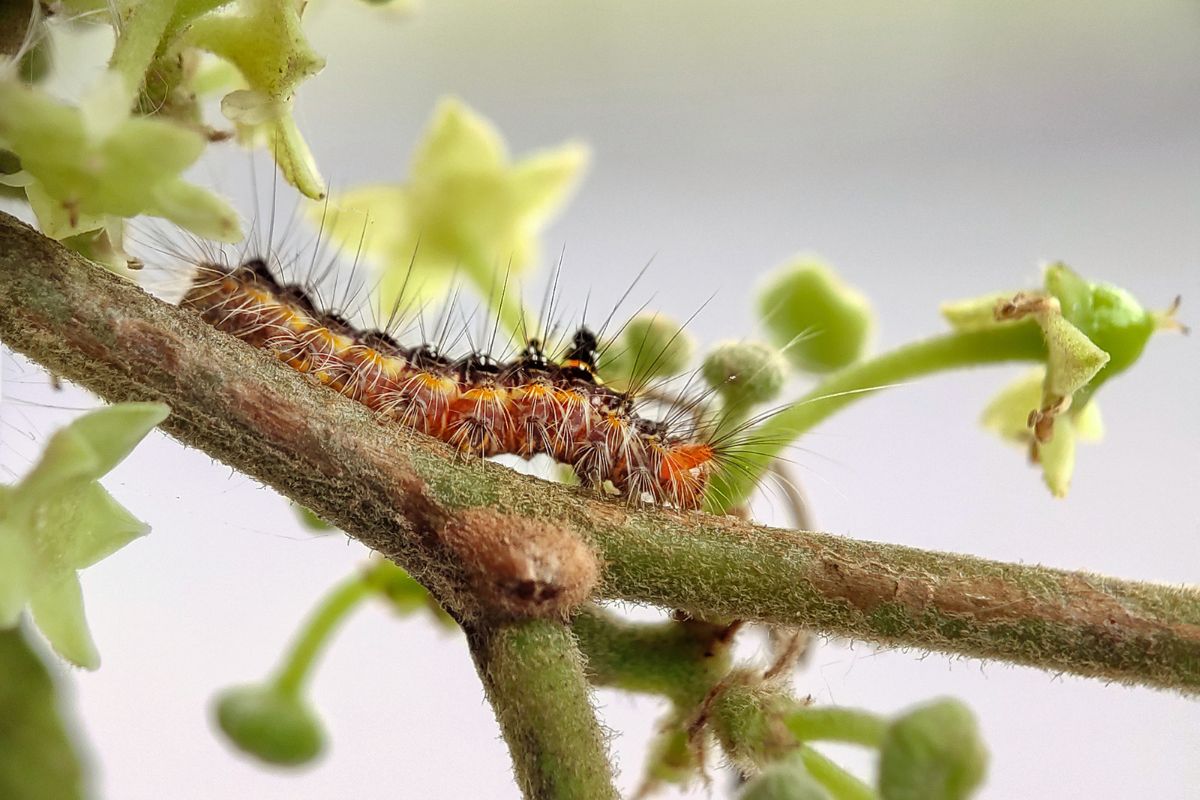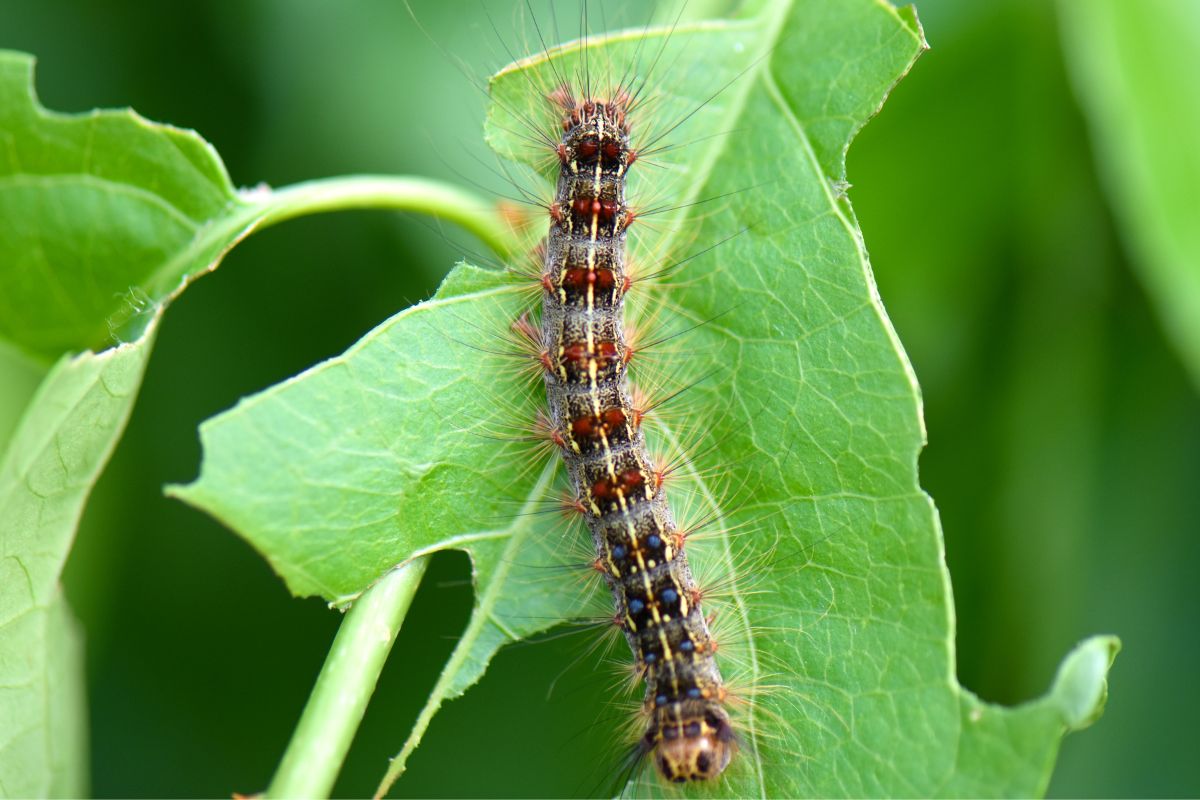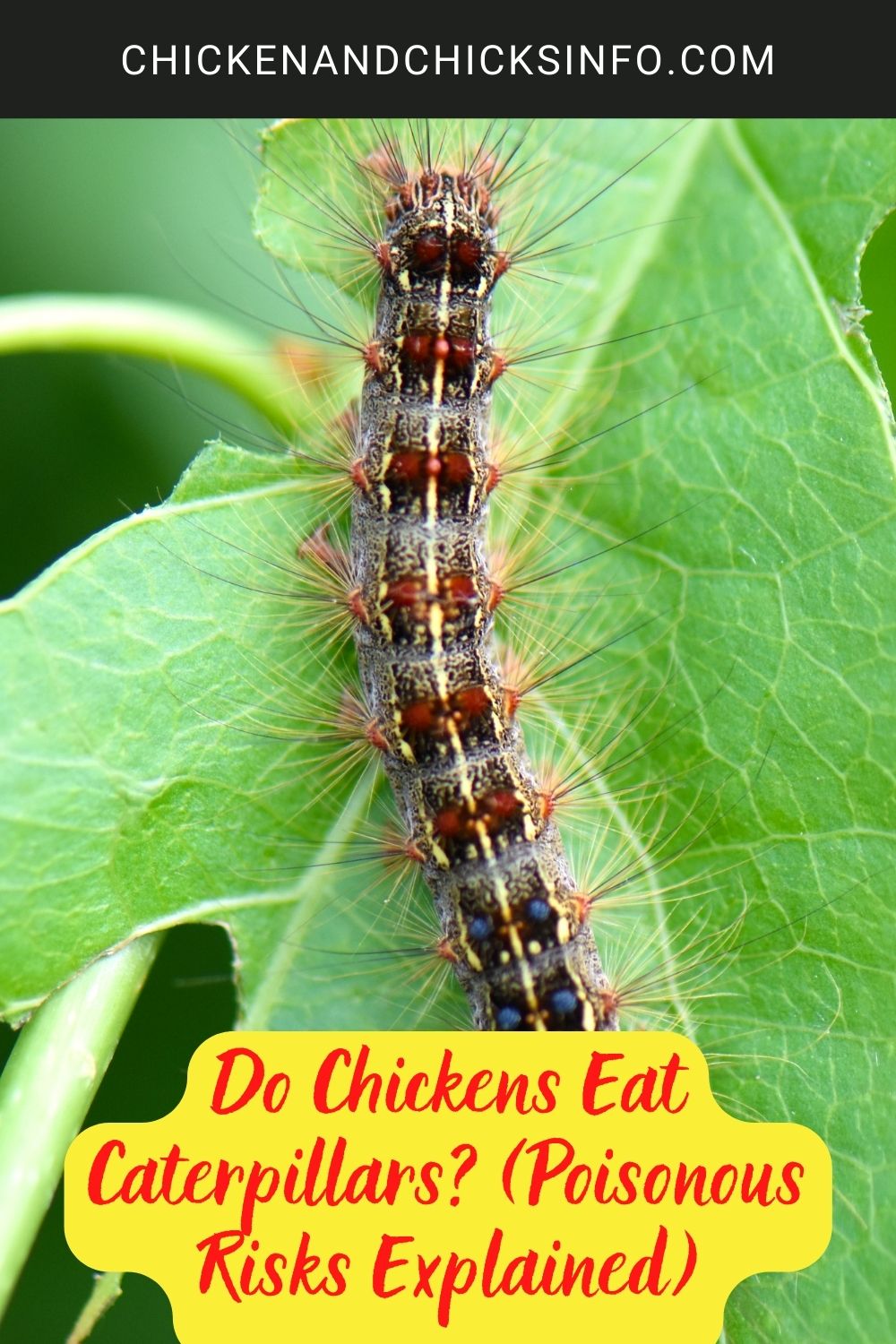
Chickens eat just about any insects, bugs, and garden pests, and this includes caterpillars. A word of warning though, some caterpillars can be poisonous so it’s advisable to identify what species of caterpillars your chickens come across.
Jump to:
Is It Ok for Chickens to Eat Caterpillars?
It’s OK for chickens to eat caterpillars, and any insects or bugs, as long as they don’t pose any threat of poisoning your chickens or are toxic if eaten.
With caterpillars, this is where there are some potential dangers. Because despite looking harmless for the most part, there are quite a few species of caterpillar that can poison or harm predators trying to eat them.
As a general rule, the more hair or the fuzzier the caterpillar, the more chance they pose a risk. This is because most poisonous caterpillars use their hairs or spines as defensive weapons to transfer poisons to their victims.
I’ve actually fallen victim to this a couple of times as a kid. I can’t remember the exact species I touched, and fortunately, it wasn’t a very poisonous one. But after just touching a caterpillar I had some intense burning and itching on my fingers that lasted for hours.
I couldn’t find any reliable studies or evidence regarding the effect a poisonous caterpillar would have on a chicken, but it’s fair to say it could cause some serious irritation if eaten.
I’ve spoken with several owners who are aware they have tent caterpillars in their yard. These are known to be toxic to some animals, and they all say their chickens never attempt to eat them.
Chickens are pretty smart when it comes to instinctively knowing what may be harmful, but it’s never good to leave it to chance.
Which Caterpillars Are Poisonous in the U.S.?

There are several species of caterpillar found across the U.S. that can cause “misery” to anyone who touches them according to Poison.org.
A few that they list include:
- Io Moth caterpillars
- Puss caterpillars
- Saddleback Caterpillars
- Buck moth caterpillars, and
- Flannel moth caterpillars
It’s hard to say how likely you are to come across any of these where you live. My best advice is to check with the relevant local authorities.
Other Bugs and Insects Chickens Can Eat
Chickens do not need much in the way of encouragement to rid a yard of every insect and bug they can find.
They are natural foragers, plus, it’s clear that they enjoy the chase when finding insects that put up a bit of resistance.
The fact that almost all insects are nutrient-dense snacks is the silver lining. Here is a list of just some of the insects chickens will happily remove from your yard for you:
- Spiders
- Ants
- Termites
- Stink Bugs
- Beetles
- Flies
- Crickets and grasshoppers
- Millipedes and centipedes
- Worms
- Grubs
...Just about anything that has 6 or more legs and moves into a chicken’s crosshairs is at serious risk of being gobbled up.
Providing a Balanced Diet for Chickens

Feeding chickens isn’t difficult. I’m not just saying that because they will eat just about anything they can get a hold of - it’s really not that hard.
The bulk of a chicken’s diet comes from a good commercial feed. There are age-appropriate feeds, varying in protein and nutritional content to match a chicken’s needs, and this will make up most of their diet.
In addition to their feed, you can also give your chooks a wide range of vegetables, fruits, and over leftovers to see what they like.
Just be sure to double-check the food you’re giving them is safe for them to eat. There are very few foods that are toxic to chickens, but some, such as green parts on potatoes and avocado skins often come as a surprise.
Then there are bugs, which is the main topic of this article. Free-range chickens are typically healthier and happier than chickens kept in confinement.
Allowing them to explore, forage, and find some of their own food sources is great if you have space and the means to allow this.
A combination of these food sources is all backyard chickens need to maintain optimal health, lay lots of large, delicious eggs, and most importantly live a long and happy life.
In Summary
Watching chickens find, chase, and eat bugs is one of the most rewarding and interesting parts of raising backyard chooks.
In the case of caterpillars, all you need to do is try to ensure they aren’t attempting to eat any species that are poisonous or harmful to them.
Resources
Caterpillar Stings - Poison.org





